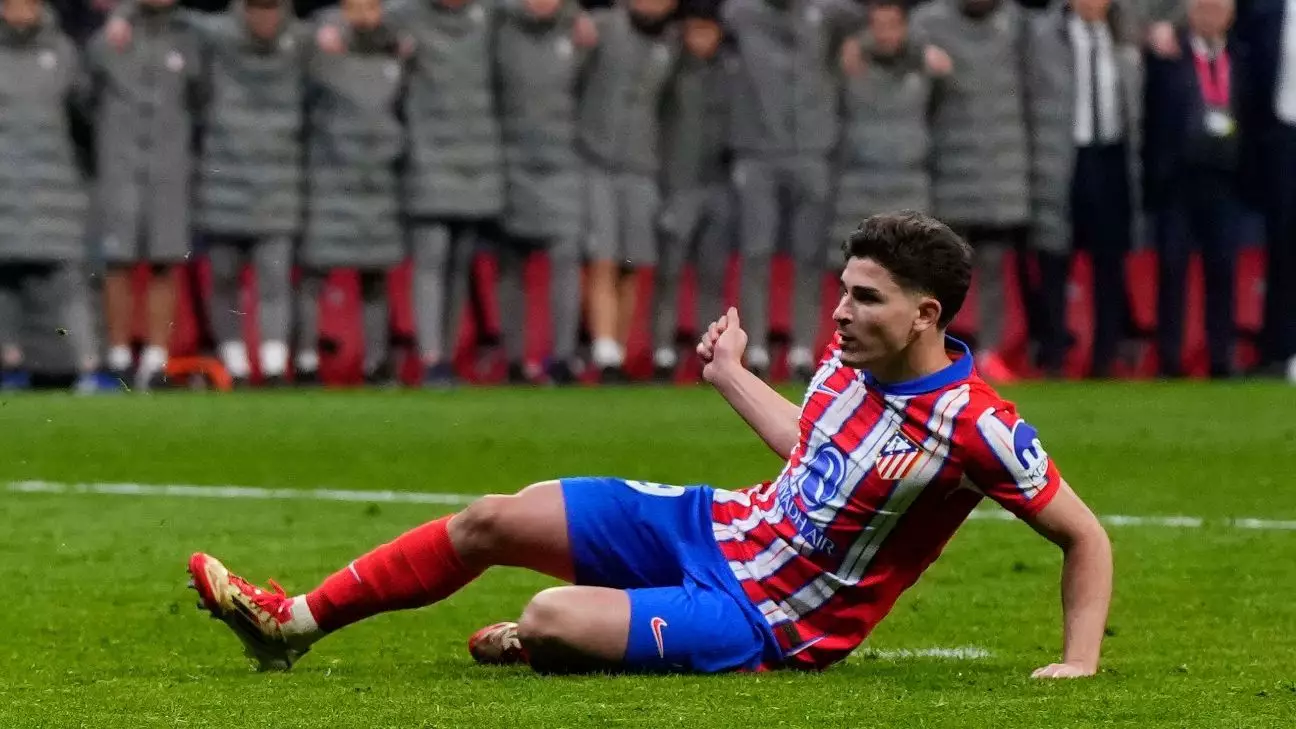In a significant move for the beautiful game, UEFA has taken steps to clarify the rules surrounding penalty kicks, particularly regarding the controversial double touch scenario that has recently caused an uproar in the Champions League. The circumstances surrounding Julián Álvarez’s mishap in the recent match between Atlético Madrid and Real Madrid prompted this urgent revision. Many fans and analysts were left bewildered when a perfectly valid goal was nullified due to what many deemed an unfortunate accident rather than a deliberate infraction.
The incident in question occurred when Álvarez executed his penalty kick, only to inadvertently strike the ball with both his kicking foot and his standing foot. This accidental double touch not only led to a stunning disqualification but also brought to light critical ambiguities inherent in the law as it stood. IFAB’s acknowledgment that previous interpretations had been vague illustrates a much-needed responsiveness to the evolving dynamics of the sport.
A Fairer Game for All
By stipulating that an accidental double touch followed by a successful goal should result in a retake, IFAB is prioritizing fairness and clarity. It is refreshing to witness a ruling body acknowledge that the spirit of the game should not be undermined by technicalities, especially when they arise from mere misfortune rather than intent. This adjustment reflects a broader trend towards a more humane game where the focus shifts from strict adherence to laws to an emphasis on maintaining the essence of competition—where skill and luck interplay without feelings of injustice.
The new rule also marks a pivotal change in how penalties are treated during shootouts and regular matches. The directive states that if a penalty kick misses after an accidental double touch, it will not warrant a retake, treating it instead as simply a missed opportunity. This delineation is crucial for maintaining the integrity of penalty shootouts, which can dictate the fate of an entire tournament.
Implications Beyond UEFA
This reform will not only have implications within UEFA competitions but extends to globally televised events such as the Club World Cup, reinforcing the importance and universality of the rule across different leagues and tournaments. It aligns with FIFA’s overarching goal to enhance the clarity and excitement of football. With Atlético Madrid included in the upcoming Club World Cup roster, the emphasis on understanding and adapting to these clarified rules could affect their strategy and performance on an international stage.
As we analyze the broader repercussions of this alteration, it is worth noting the responsiveness of football’s governing bodies to the needs of players, teams, and fans alike. The intricate dance between strict regulation and the unpredictability inherent to sports necessitates a flexible approach, and IFAB’s intervention signifies a willingness to cultivate a more just framework through which football can continue to thrive and inspire.

